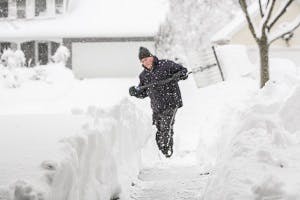With winter on the way, now is the time to check your hearing aids and take preventative measures to ensure the changing weather doesn’t stop you from enjoying your favorite winter activities.
If you don’t spend much time outside, the temperature will not necessarily impact your hearing aids. However, the temperature change from your warm, cozy home to the frigid outdoors can cause condensation that may damage parts of your hearing aids.
Combatting Condensation
Condensation and sweat can damage your hearing aids’ microphone and receiver. Batteries can become corroded and earmold tubing gets clogged.
Here are some common signs of moisture damage:
- Sound cutting in and out during loud noises
- Sound is mingled with static
- Sound is unclear, distorted or fades in and out
The good news is there are preventative measures you can take to protect them from possible weather-induced damage.
- Invest in a drying kit or dehumidifier
- Use hearing aid sweatbands or covers during physical activity
- Carry an umbrella or a hat to protect your hearing aids in inclement weather
Steps to Preserve your Hearing Aids
Regularly cleaning and maintaining your hearing aids is strongly recommended. Monitor your battery strength, clear away wax, and check earmold tubing to ensure there are no cracks.
If exposed to moisture, here are some tips to preserve your hearing aids:
- Remove moisture from the batteries and replace them if necessary
- Use a cloth or cotton swab to dry all parts of your hearing aids
- Place near a gentle heat source, like a table lamp
- Dry with a fan or hairdryer on a low setting
- Place them in a baggie with rice or silica gel to absorb the moisture
Learn how Hearing Associates can help maintain your ear health through the winter months. Request an appointment online or call us at 888.760.2032.


